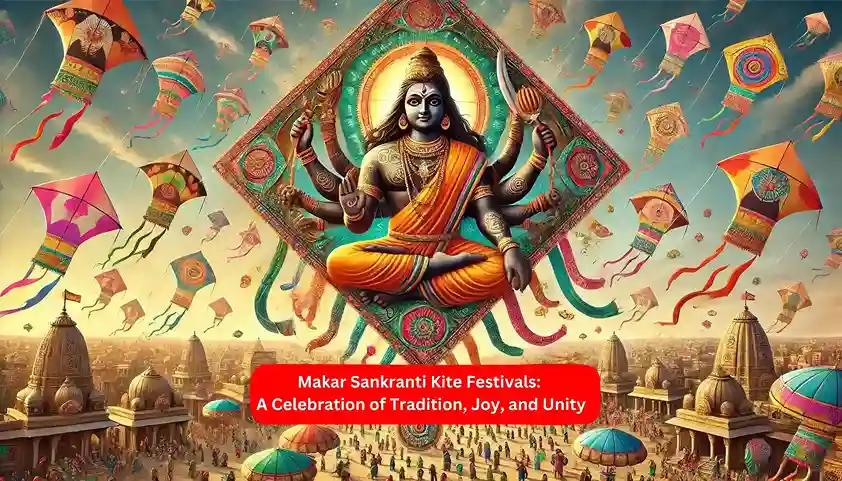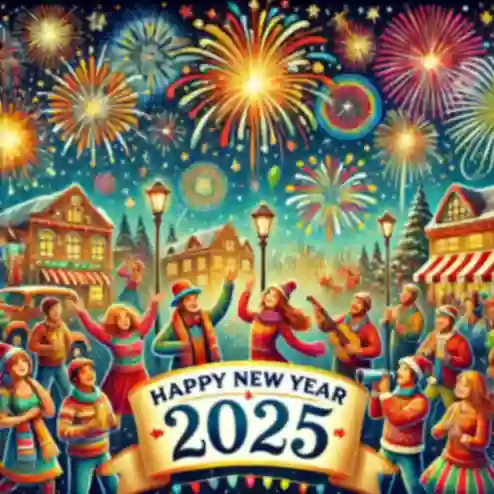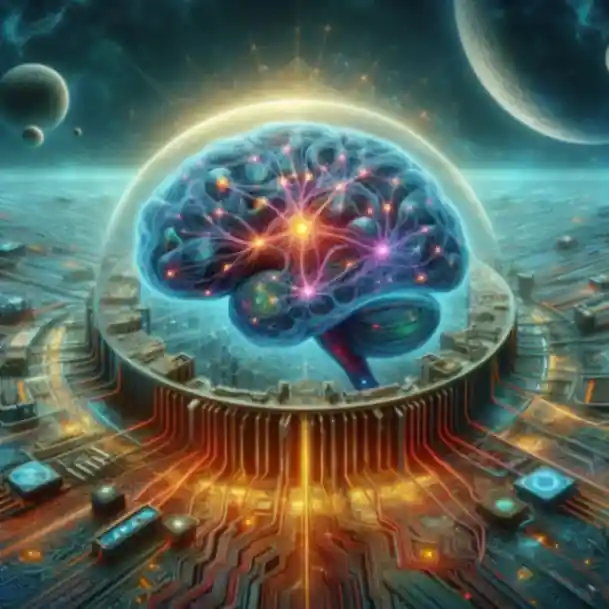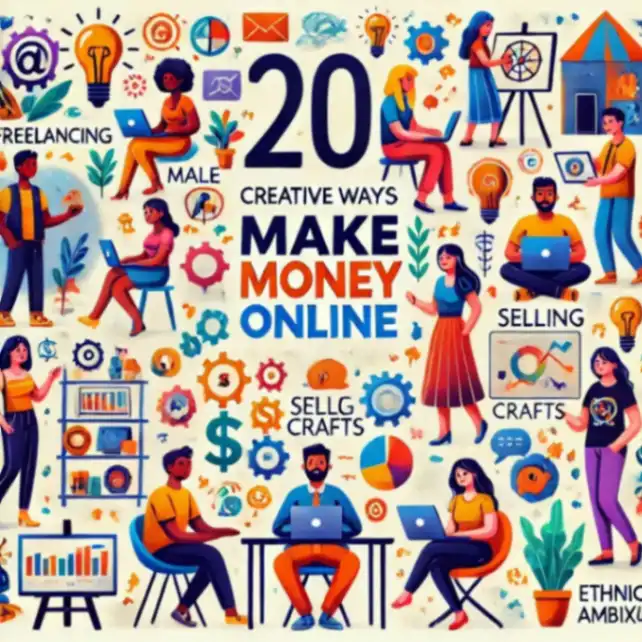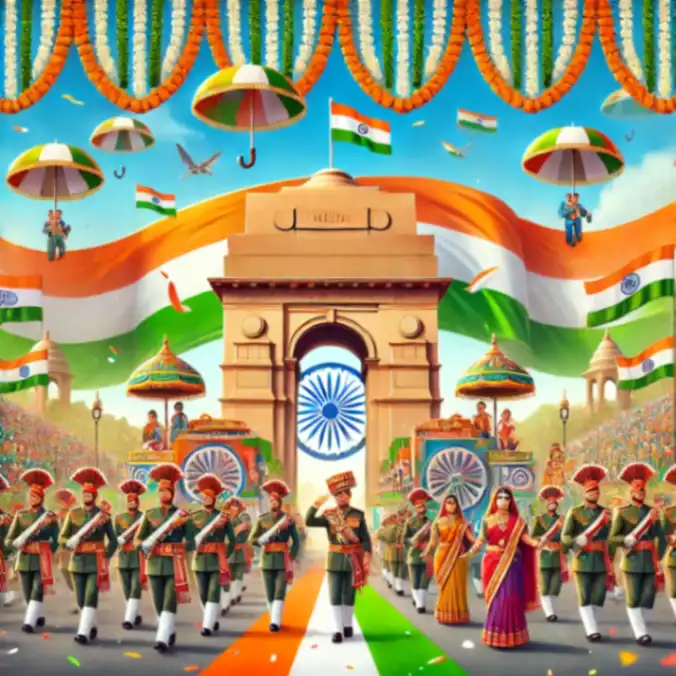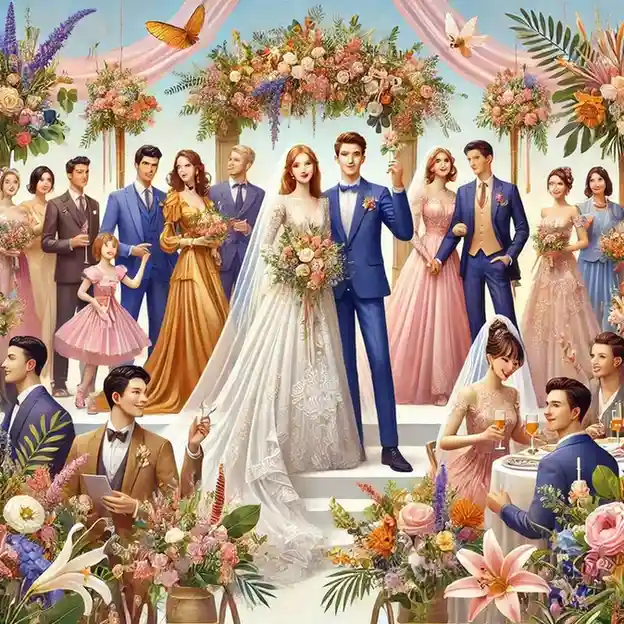
The year 2025 promises to be an exciting time for couples planning their big day, with innovative trends reshaping the wedding industry. From sustainable practices to cutting-edge technology, the evolving preferences of couples and guests are set to make weddings more personalized, inclusive, and memorable than ever before. Here, we delve into the top wedding trends for 2025, offering insights for planners, brides, grooms, and anyone inspired by the art of celebration.
- 1. Sustainable Weddings: A Celebration with Conscience
- 2. Technology-Infused Celebrations
- 3. Weekday Weddings: Breaking the Norm
- 4. Statement Fashion: Personal Expression in Bridal and Groom Wear
- 5. Experiential Weddings: More Than Just a Ceremony
- 6. Micro-Weddings: Small in Size, Big on Impact
- 7. Cultural Fusion: Celebrating Diversity
- 8. Focus on Entertainment
- 9. AI and ChatGPT Assistance for Planning
- 10. Photo and Video Innovations
- 11. Mental Health and Wellness Integration
- 12. Financial Innovation in Wedding Planning
- 13. Personalized Health and Safety Measures
- 14. Sound and Sensory Experiences
- 15. Educational Components
- 16. Time-Capsule Traditions
- 17. Transportation Innovation
- 18. Child-Inclusive Planning
- 19. Career and Professional Integration
- 20. Adaptive Technology
- Future Outlook
- Conclusion
1. Sustainable Weddings: A Celebration with Conscience
Environmental consciousness is no longer just a preference; it’s a priority for many couples. In 2025, sustainability will be a cornerstone of wedding planning, influencing choices across venues, attire, and catering. Here are some notable aspects:
- Eco-Friendly Venues: Outdoor locations like botanical gardens, forests, and eco-resorts that emphasize environmental conservation will gain popularity. Indoor venues will also focus on energy-efficient designs.
- Recyclable and Biodegradable Decor: Couples are moving away from single-use plastics, favoring biodegradable materials, upcycled elements, and minimalistic designs.
- Plant-Based Catering: Menus with locally sourced and organic ingredients, as well as plant-based options, will cater to both ethical and dietary preferences.
- Green Gifting: Couples will encourage donations to charitable causes or opt for sustainable registries featuring eco-friendly products.
- Carbon-Neutral Weddings: Offsetting the carbon footprint of the wedding through tree-planting programs or renewable energy credits is gaining momentum.
2. Technology-Infused Celebrations
Technology continues to revolutionize weddings, blending tradition with innovation to create immersive experiences. In 2025, expect to see:
- Virtual Invitations: Digital invites with interactive elements like personalized video messages and QR codes for RSVP and event details.
- Livestreaming and Hybrid Weddings: For guests unable to attend in person, hybrid setups with professional livestream services will ensure inclusivity.
- AR/VR Experiences: Augmented and virtual reality will enhance guest experiences, from virtual photo booths to 3D wedding tours.
- Blockchain for Guest Management: Blockchain technology may be used for secure RSVPs, seating arrangements, and digital gifts.
- AI Wedding Planners: AI-powered tools are assisting couples in everything from theme selection to creating real-time guest engagement strategies.
3. Weekday Weddings: Breaking the Norm
With the rising costs of traditional weekend weddings, couples in 2025 are opting for weekday celebrations. Advantages include:
- Cost Efficiency: Venues and vendors often charge less for weekday bookings.
- Intimate Gatherings: Smaller guest lists ensure more personalized interactions and meaningful connections.
- Extended Celebrations: Couples can organize multi-day festivities that spread out over the week, such as pre-wedding brunches or post-wedding relaxation retreats.
- Unique Availability: Popular venues and sought-after vendors are more likely to have open slots during weekdays, reducing the stress of competition.
4. Statement Fashion: Personal Expression in Bridal and Groom Wear
Weddings in 2025 will celebrate individuality, with fashion taking center stage. Key trends include:
- Bold Colors and Patterns: Brides are moving away from traditional whites, experimenting with vibrant hues like emerald green, pastel pinks, and even striking black.
- Gender-Fluid Attire: Inclusive fashion is on the rise, with non-binary and gender-neutral designs making waves.
- Detachable Elements: Dresses and suits with removable sleeves, skirts, or capes offer versatility for transitioning between the ceremony and reception.
- Sustainable Fabrics: Ethical production processes and eco-friendly fabrics like organic cotton, hemp, and recycled materials are becoming mainstream.
- Custom Accessories: From bespoke jewelry to hand-embroidered veils, personalization is adding sentimental value to wedding attire.
5. Experiential Weddings: More Than Just a Ceremony
Couples are focusing on creating immersive and memorable experiences for their guests. These experiences include:
- Interactive Activities: Think mixology classes, DIY flower crown stations, or live painting during the reception.
- Themed Weddings: From whimsical fairy tales to 1920s Gatsby glam, thematic celebrations are captivating guests.
- Wellness Elements: Incorporating yoga sessions, meditation corners, or aromatherapy bars for guests to relax.
- Destination Adventures: Destination weddings that include group activities like snorkeling, hiking, or city tours are highly appealing.
- Cultural Immersion: Destination weddings are increasingly focusing on showcasing the local culture, such as traditional dances, music, or cuisine.
6. Micro-Weddings: Small in Size, Big on Impact
Micro-weddings, characterized by their intimate guest lists of 20-50 people, are here to stay. Couples are channeling their resources into creating exceptional experiences:
- Lavish Decor: Smaller guest counts allow for higher-budget decor elements, such as floral installations and bespoke lighting.
- Gourmet Dining: Personalized menus with exquisite multi-course meals and curated wine pairings.
- Unique Venues: Think private villas, historic landmarks, or exclusive restaurants.
- Enhanced Guest Experience: With fewer attendees, couples can invest in luxury welcome kits, personalized favors, and interactive entertainment.
7. Cultural Fusion: Celebrating Diversity
As interfaith and multicultural weddings become more common, 2025 will see creative ways to honor diverse traditions:
- Blended Ceremonies: Combining elements from different cultures, such as a Hindu pheras ceremony followed by a Western-style vow exchange.
- Fusion Cuisine: Menus that blend flavors from multiple regions, creating a culinary journey for guests.
- Inclusive Decor: Symbolic decor that integrates motifs and styles from various heritages.
- Dual Outfits: Couples are opting for outfit changes to represent each culture during different parts of the ceremony.
8. Focus on Entertainment
Entertainment will go beyond DJs and live bands in 2025, offering guests unforgettable moments:
- Celebrity Performances: More couples are inviting local celebrities or influencers to entertain.
- Immersive Shows: Think acrobatic performers, live muralists, or synchronized drone light shows.
- Personalized Playlists: AI-generated playlists based on guest preferences, ensuring everyone’s favorite songs are played.
- Interactive Experiences: From dance-off competitions to karaoke corners, guest participation will be a central focus.
9. AI and ChatGPT Assistance for Planning
AI tools are transforming the wedding planning process, offering:
- Personalized Recommendations: From venue suggestions to decor ideas, AI can streamline planning.
- Budget Optimization: Tools to help allocate resources efficiently without compromising on quality.
- Automated Communication: Chatbots managing guest queries, RSVPs, and event updates.
- Real-Time Adjustments: AI systems capable of making last-minute changes to schedules, guest seating, or entertainment.
10. Photo and Video Innovations
Capturing memories is central to any wedding, and in 2025, technology is taking this to the next level:
- Drone Videography: Aerial shots capturing stunning landscapes and creative angles.
- Short-Form Videos: Highlight reels for social media sharing, emphasizing key moments in bite-sized formats.
- Candid and Documentary Styles: Authentic storytelling through unposed, natural shots.
- Interactive Albums: Digital photo albums with embedded video clips and voiceovers from the couple or guests.
11. Mental Health and Wellness Integration
The focus on mental well-being has become integral to wedding planning in 2025:
- Pre-Wedding Therapy: Couples counseling and group therapy sessions for the wedding party are becoming standard.
- Stress-Free Planning: Mental health professionals specializing in wedding-related anxiety are part of planning teams.
- Mindfulness Corners: Dedicated spaces at receptions for meditation and decompression.
- Schedule Flexibility: Built-in breaks during celebrations to prevent emotional overwhelm.
12. Financial Innovation in Wedding Planning
Modern couples are embracing new financial approaches:
- Cryptocurrency Registries: Digital currency gifts and blockchain-based wedding registries.
- Crowdfunding Platforms: Specialized wedding investment accounts where guests can contribute throughout the engagement.
- Payment Plans: Flexible vendor payment structures spread across longer periods.
- Investment Packages: Combined wedding and honeymoon investment options with financial benefits.
13. Personalized Health and Safety Measures
Post-pandemic awareness continues to influence celebrations:
- Health Concierge Services: On-site medical professionals for guest safety.
- Customized Sanitation: Elegant sanitization stations integrated into decor.
- Air Quality Management: Advanced filtration systems for indoor venues.
- Digital Health Passes: Streamlined systems for managing health requirements.
14. Sound and Sensory Experiences
Multisensory elements are enhancing wedding experiences:
- Sound Healing: Crystal bowls and meditation bells in ceremonies.
- Scent Design: Custom fragrances reflecting the couple’s journey.
- Tactile Elements: Interactive art installations and textured decor.
- Chromotherapy: Strategic use of colors for emotional impact.
15. Educational Components
Weddings are becoming opportunities for learning and growth:
- Workshop Reception: Stations teaching traditional crafts or skills.
- Heritage Education: Programs sharing cultural significance of traditions.
- Sustainability Workshops: Teaching guests about eco-friendly practices.
- Relationship Wisdom: Elder couples sharing marriage advice through interactive displays.
16. Time-Capsule Traditions
New ways of preserving memories are emerging:
- Digital Time Capsules: Cloud-stored messages and photos to be opened years later.
- Anniversary Boxes: Sealed containers with items from the wedding day.
- Future Letters: Guests writing messages for milestone anniversaries.
- Memory Banking: Professional services documenting oral histories and stories.
17. Transportation Innovation
Getting to and from weddings is evolving:
- Electric Vehicle Fleets: Eco-friendly transportation options.
- Virtual Reality Tours: Pre-wedding venue visits through VR.
- Group Transportation Apps: Custom platforms for coordinating guest travel.
- Adventure Transport: Unique vehicles like hot air balloons or vintage cars.
18. Child-Inclusive Planning
Family-friendly elements are being reimagined:
- Kids’ Adventure Zones: Supervised areas with age-appropriate activities.
- Family Ceremony Roles: Meaningful participation opportunities for children.
- Multi-Generation Activities: Events designed for all age groups.
- Child-Specific Catering: Gourmet options for younger guests.
19. Career and Professional Integration
Couples are incorporating their professional lives:
- Industry-Themed Elements: Decor reflecting career passions.
- Networking Opportunities: Professional connection spaces at receptions.
- Work-Life Balance: Scheduling around global time zones for remote workers.
- Professional Skills Showcase: Incorporating talents into ceremonies.
20. Adaptive Technology
Accessibility is becoming central to planning:
- Sign Language Holograms: Real-time translation services.
- Mobility Assistance: Smart pathways and support systems.
- Sensory Adaptation: Adjustable lighting and sound levels.
- Remote Participation: Enhanced virtual attendance options.
Future Outlook
The wedding industry continues to evolve, blending tradition with innovation. Key factors shaping future trends include:
- Increasing focus on personal values and authenticity.
- Growing importance of technological integration.
- Rising emphasis on inclusive and accessible celebrations.
- Continued evolution of sustainable practices.
- Enhanced focus on guest experience and engagement.
As we look ahead, weddings will continue to be transformative experiences that celebrate love while reflecting contemporary values and innovations. The trends of 2025 mark just the beginning of this exciting evolution in how we celebrate partnerships and community.
Conclusion
The wedding trends of 2025 reflect a blend of tradition, innovation, and personalization. Couples are embracing individuality, prioritizing sustainability, and leveraging technology to create celebrations that resonate with their values and personalities. Whether it’s through a grand event or an intimate gathering, 2025 promises to be a year where love is celebrated in its most unique and thoughtful forms. By staying ahead of these trends, couples can ensure their special day is not only memorable but also meaningful.
As we look to the future of weddings, one thing is clear: they are evolving into experiences that honor love, individuality, and the shared joy of community. And that’s a trend worth celebrating!
With this extensive guide to the wedding trends of 2025, couples and planners alike can draw inspiration to craft events that are as beautiful as the love they celebrate.
Read more about wedding planning tool at https://weddingwire.com/
